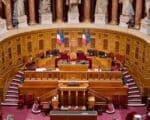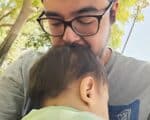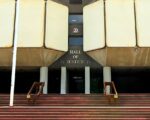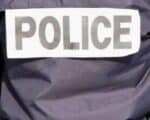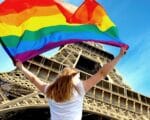>> Before Orlando: The (former) deadliest LGBT attack in U.S. history
[spacer]
Le massacre perpétré ce dimanche 12 juin à Orlando n’est que le dernier chapitre d’une longue histoire de violences dans des clubs et des bars LGBTQ en Amérique. En fait, depuis que les membres de la communauté se rassemblent dans leurs propres espaces, ces derniers sont victimes d’une féroce violence.
Jusqu’à la fusillade du Pulse, le plus célèbre acte de violence de ce type était l’incendie de l’ « UpStairs Lounge », un bar gay de la Nouvelle Orléans, en 1973. Un incendiaire y avait mis le feu et provoqué la mort de 32 personnes en moins de vingt minutes. La grande majorité des hommes politiques avait refusé de faire des commentaires sur l’incendie et l’archevêque de la Nouvelle Orléans n’avait pas proposé de soutien aux victimes (l’archidiocèse s’est excusé pour son silence en 2013). De nombreux médias avaient choisi de ne pas en parler et certains de ceux qui l’avaient évoqué s’étaient moqués de l’orientation sexuelle des victimes.
Personne n’a jamais été poursuivi pour ce crime. Lorsqu’on l’avait interrogé sur le processus d’identification des victimes, le détective en chef du département de police de la Nouvelle Orléans avait répondu: « Nous ne savons même pas si ces papiers appartenaient aux personnes sur qui nous les avons retrouvés. Il y a des voleurs qui traînent par là et vous savez, c’était un bar homo. »
En 1997, Eric Robert Rudolph, surnommé « Olympic Park Bomber », posa une bombe dans l’« Otherside Lounge », une boîte de nuit lesbienne d’Atlanta. Il expliqua ensuite qu’il croyait que « les tentatives collectives de légitimation de l’homosexualité » étaient « une agression contre l’intégrité de la société américaine ». Pour lui, l’homosexualité était un « comportement sexuel aberrant » et il écrivit que « lorsque certains tentent de reconnaître ce comportement comme étant tout aussi légitime et normal que la relation naturelle entre un homme et une femme, tous les efforts possibles doivent être déployés, y compris l’usage de la force si nécessaire, pour les arrêter ». Dans sa confession, Rudolph vitupère contre « le programme homosexuel », notamment « le mariage gay, l’adoption homosexuelle, les lois contre les crimes de haine concernant les gays ou la tentative d’introduire un programme normalisant l’homosexualité dans nos écoles. »
Trois ans plus tard, Ronald Gay a ouvert le feu sur le « Backstreet Cafe », un club gay de Roanoke, en Virginie, tuant Danny Overstreet, 43 ans, et blessant gravement six autres personnes.
Gay était furieux que son nom de famille puisse vouloir dire « homosexuel » et déclara que Dieu lui avait dit de tuer des homosexuels. Il se qualifiait lui-même de « soldat chrétien qui travaille pour mon Seigneur » et déclara au tribunal qu’il regrettait de ne pas avoir « tué plus de pédés ».
Plus récemment, en 2013, Musab Mohammed Masmari a mis le feu au « Neighbours », une boîte de nuit gay du quartier de Capitol Hill à Seattle, la nuit de la Saint Sylvestre. Masmari a expliqué qu’il pensait que les gays « devraient être exterminés. »
Évidemment, ces agressions ne font que ponctuer les milliers de crimes de haine visant la communauté LGBTQ qui se produisent chaque année en public –dans des écoles, des toilettes et des parcs, sur des trottoirs et souvent en plein jour. Les crimes anti-LGBTQ n’ont été criminalisés au niveau fédéral que très récemment, car le président George W. Bush avait menacé de mettre son veto sur toute législation pénalisant les crimes de haine sur la base de l’orientation sexuelle et de l’identité de genre.
Avec le soutien de Barack Obama, le « Matthew Shepard and James Byrd Jr. Hate Crimes Prevention Act » fut finalement voté en 2009. Il n’obtint que cinq voix républicaines au Sénat et son plus farouche opposant, le sénateur républicain Jeff Sessions, reprocha à ses collègues d’avoir simplement cédé « à la cause politique du moment. »
[spacer]
>> There are some distinctions nobody wants to see passed on. The site of the deadliest attack on the LGBT community in U.S. history is one of them.
For nearly 43 years, up until Sunday’s mass shooting in Orlando, that horrible title belonged to New Orleans. A fire determined to be arson tore through the Up Stairs Lounge, a gay bar in the French Quarter, killing 32 people.
Three victims were never identified. Several bodies were never claimed because the victims’ families were too ashamed.
The story of the Up Stairs Lounge fire did not draw an outpouring of attention and sympathy. No massive vigils sprouted up across the country. Banners offering solidarity with New Orleans were inconceivable. National leaders weren’t moved to condemn the attack or issue condolences. Even local officials — including the mayor, governor and archbishop — stayed mum. (Never mind, say experts on the attack, that twice earlier in the year these leaders issued statements, even declared a day of mourning, after fires that were far less lethal.)
Somewhere between the police raid of the Stonewall Inn in 1969 and the assassination of Harvey Milk in 1978, this tragic chapter in LGBT history went largely overlooked and unwritten. It was certainly news to filmmaker Robert Camina when he first heard about the fire three years ago.
That’s one reason he created « Upstairs Inferno, » a feature-length documentary released last June.
« It was so incredibly painful that people did not want to talk about it, » Camina said Monday, as he still struggled to absorb the deaths of 49 at the Pulse nightclub in Orlando. « I can only imagine the flashbacks and the horror that surged in the wake of this news. … Everyone was emotionally scarred. »
Keeping the faith
Over the phone from his home in Los Angeles, the Rev. Elder Troy Perry fights back tears, with limited success. He weeps for the past and the present.
He wasn’t there at the Up Stairs Lounge on June 24, 1973, when ignited lighter fluid in a stairwell unleashed hell on New Orleans’ gay community. But he flew across the country to be there right after.
A rescue worker leans against a blackened window frame through which he helped remove charred bodies after the fire. Three victims were never identified; two others were never claimed by families.
The second-floor bar, at the corner of Chartres and Iberville streets, was a gathering place. It was a venue where community members could feel safe, at home and free to be themselves. One patron featured in Camina’s film said those in the bar became his family; he no longer felt comfortable with his own because he was gay. Another recalled how he used to bring along his dog, a shaggy « bar hound » who’d enjoy his own bowl of milk and vodka.
The patrons would listen to music played by a man they all called Piano Dave and gather in a circle at the end of the night to sing, « United we stand, divided we fall. » (Pianist David Stuart Gary died in the blaze.)
Perry, 75, was the founder of the international movement of Metropolitan Community Churches. Launched in 1968, it was the world’s first Christian church to offer an inclusive ministry to the gay, lesbian, bisexual and transgender community. Today, there are hundreds of congregations in dozens of countries.
For a time, New Orleans’ MCC met in a theater at the Up Stairs Lounge. They’d found another home by the time of the fire, but church members still frequented the bar.
Perry has been out and proud for nearly half a century. He and his now-husband were two of the four plaintiffs in the first lawsuit challenging the constitutionality of California’s ban on same-sex marriages. Three years before the Up Stairs Lounge arson attack, Perry helped plan the first Gay Pride Parade in Los Angeles. He’d just returned home from celebrating the third annual parade when he got the call about the New Orleans fire.
Twelve members of his church died that night, including the local MCC pastor, the Rev. William « Bill » Larson, whose body was found trying to squeeze out a window, past security bars. Most of the victims were piled near that wall, all aiming to get out windows. An associate pastor, Duane « Mitch » Mitchell, escaped through a little-known back exit but returned to try to save his boyfriend, Horace Broussard. Their bones were found entangled and seared to the floor, Perry said.
Mitchell’s son, Duane, recalls sitting at a movie theater with his younger brother waiting for his father to pick them up. It would be a week before anyone would tell him his daddy was dead, he told filmmakers. No one bothered to say they were sorry for his loss.
Others in the film talk of nervous breakdowns, years of drinking and nightmares. The love of one survivor’s life was lost. Another talked about his anger at God.
Perry didn’t lose faith, but not for lack of being tested. Two MCC churches — one in Nashville, another in Los Angeles — had been torched in the months leading up to the New Orleans fire, he said. The Up Stairs inferno only strengthened his determination not to back down.
A history of attacks
The Pulse nightclub mass shooting and the Up Stairs Lounge arson are bookends in a line of attacks that have specifically targeted LGBT clubs and bars.
On December 31, 2013, an attempted arson attack at a Seattle gay nightclub threatened to burn 750 people alive. The fire was extinguished quickly and no one was hurt.
Three men threw chunks of concrete into a gay bar in Galveston, Texas, in March 2009. One patron who was hit required 12 staples in his head.
A man opened fire in a Roanoke, Virginia, gay bar in September 2000, killing one and injuring six.
Eric Rudolph, the infamous Olympic Park bomber, was behind a February 1997 bombing of a gay and lesbian nightclub in Atlanta. Five clubgoers were wounded, one seriously.
These are just some of the attacks that have been reported. Many are not, making hate crime statistics notoriously unreliable, said Mark Potok, a senior fellow at the Southern Poverty Law Center.
A leading expert on extremism, Potok set out to analyze such trends by studying 14 years of hate crimes compiled by the FBI.
Looking through more than 88,000 reported hate crimes from 1995 through 2008, Potok found that more than 17% targeted the LGBT community — and that it was disproportionately affected compared to other groups. Among his findings:
LGBT people were more than twice as likely to experience a violent hate crime attack than Jews or blacks, more than four times as likely as Muslims, nearly 14 times as likely as Latinos, and about 42 times as likely as whites.
Looking at figures from 2014, the most recent year available, he said there were nearly 1,100 anti-LGBT hate crimes — about the same as the annual average for the 14 years he studied.
« The country is moving forward in very dramatic ways in terms of tolerance. Fifteen years ago, it was unimaginable that same-sex marriage would be legal in 50 states, » Potok said. « But at the same time, there’s an incredibly angry minority of people who see [members of the LGBT community] as destroyers of America. »
Honoring the forgotten
After Perry arrived in New Orleans in June 1973, he fought to bring honor to the lives that were lost at the Up Stairs Lounge.
He grimaced at the sick jokes he heard around town — like the one from a radio host who asked, « What do we bury them in? Fruit jars. » He struggled to find a large enough site to hold a memorial service. Many churches he called wouldn’t have it and hung up on him. Eventually he found one that was willing.
A journalist featured in Camina’s film remembered overhearing a photographer refer to the attack as the « Fruit Fry. » People who’d lost friends and loved ones had to go to work and not mention the fire or show any grief, for fear of outing themselves. Camina said the lack of support after the fire prompted some friends of victims to retreat deeper into closets. Even in their 80s, he said, some still have not come out.
No charges were ever filed after the Up Stairs Lounge attack. Police closed their case just two months later. But there was a presumed culprit, based on a threat made in the bar that night and subsequent interviews conducted by the state fire marshal. This suspect, though, committed suicide the following year.
Like the shooter in Orlando, this man, too, had exhibited worrisome behavior and shown signs of being conflicted about who he was, according to the documentary.
He matched the description of a man who’d bought lighter fluid near the lounge just before the fire. He’d confessed to the crime while drunk, a handful of times, the film says. And the woman he married soon after the attack later told the fire marshal their relationship had never been consummated and that he’d admitted he was gay.
No matter the suspect’s intentions, Perry said in the documentary, this man was the fire’s 33rd victim.
Camina, the filmmaker, says after the massacre in Orlando he’ll never be able to watch « Upstairs Inferno » the same way. Especially the ending, where he now views Perry’s closing words as « chilling and prophetic. »
With tears in his eyes, the church leader sat in front of the camera and talked of the New Orleans fire:
It is one of those things that happened that I hope will never be repeated again. I hope nobody ever has to live through what we did and what we saw when we went to New Orleans, Louisiana. Never again will I face that kind of stuff. I hope not. I pray not. But if it does happen, don’t give up the struggle and the fight, is what I tell people. Go and bury our dead, hold a service and get ready to still make a difference in this world.
Now, mourning the 49 killed at the Pulse nightclub, he’s forced to revisit this sentiment: « I hope to God that I never live to see something like this again. »
Forty-six years after the first pride parade in his city, a parade he helped make happen, Perry opted out of the most recent one this past Sunday. He was able to blame a twisted ankle and bad back for his need to stay home, but the truth, he says, is he couldn’t emotionally budge.
« I asked my neighbors in my community to pray, » he said, « because I couldn’t do anything but cry. »
The images on television, the outpouring of support, do give him hope. He marvels at how far this country has come. It’s a different nation than it was in 1973.
But still, in the comfort of his home in Los Angeles, Perry is grieving and searching for strength.





